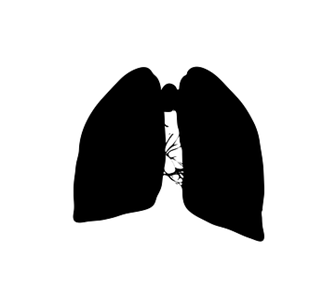Spreading Awareness of the Risk of Lung Cancer in Patients with COPD
 Most patients with COPD require greater motivation to seek help when symptom changes occur and most people are unaware of their increased risk of developing lung cancer, according to new research.
Most patients with COPD require greater motivation to seek help when symptom changes occur and most people are unaware of their increased risk of developing lung cancer, according to new research.
In a UK-based qualitative interview study published in Psycho-Oncology, researchers explored how COPD affects patient response to changes in their symptoms and sought to explain their reluctance to seek help from medical professionals. The results showed that patients often disregarded early signs of lung cancer and instead believed they were COPD-related. They also showed that none of the patients knew about the link between their condition and the potential onset of lung cancer.
“Various factors were considered to explain why patients avoided seeking medical treatment,” the researchers said. “Researchers acknowledged awareness to the risk of lung cancer, prompt diagnosis, and early treatment could prolong survival rates.”
Between July 2016 and May 2017 interviews were completed with 40 patients with COPD aged 40 to 83 in Glasgow, Scotland. Questions were related to four different “circles of influence” regarding patient self-knowledge, his or her amount of social interaction, cultural attitudes and social structure.
Researchers were able to gather information on each patient’s symptom experience, interpretation, action, recognition, help-seeking tendencies, evaluation and re-evaluation. Likewise, cultural influences had a dramatic effect on individuals’ reluctance to seek professional help.
“Many participants wanted to be considered ‘good patients’,” researchers said.
For example, patients felt concern about wasting a physician’s time, which demonstrates mindfulness of a moral balance between responsible use of medical services and avoidance of needlessly sacrificing their health.
“Many patients emphasized they would only consult their physician in critical circumstances,” the research found.
Patients also were more likely to be fatalistic and were deterred from seeking care. In fact, a number of individuals interviewed said they felt pessimistic about the idea of achieving improved symptoms. Social interaction also was a key influence on an individual’s likelihood to seek treatment. For example, family members and friends noticed worsening coughs or physical changes when patients failed to recognize any change themselves. Those who had the support of family or friends had a greater chance of attaining help than those who expressed feelings of isolation.
Social capacity was also found to be a major influencer on a patient’s tendency to seek help. Many patients said they purposefully avoid social situations that could alert others to their condition because of their feelings of embarrassment about it. In addition to social isolation, other barriers to care included scheduling appointments beyond typical working hours and transportation or physical mobility issues.
The prevalence of lung cancer, which is among the most common forms of cancer, is four times higher in patients with COPD. Researchers indicated concern that informing patients of a link between COPD and cancer could be harmful and lead to increased fatalism, but also said that raising awareness of the relationship between “COPD and lung cancer will enlighten patients to the benefits of early diagnosis.”
“Healthcare professionals need to do more to educate those with COPD about their increased risk of developing lung cancer and be more vigilant when a patient with the illness presents changing symptoms,” said Kathyrn A. Robb, PhD, and senior lecturer at the University of Glasgow, in a statement.

